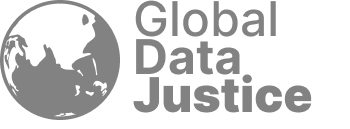This week on Resist and Reboot, we talk to Anasuya Sengupta, the Co-Director and co-founder of Whose Knowledge?. She has led initiatives in India and the USA, across the global South, and internationally for over 20 years, to amplify marginalised voices in virtual and physical worlds.
Anasuya discusses the genesis of Whose Knowledge ? as a project, and campaign that aimed to center knowledge of the world’s marginalised communities (the minoritised majority) away from conversations that are currently driven and dominated by Silicon Valley. Through projects such as Decolonising the Internet, resources like Our Stories, Our Knowledge and a fund called Numun Fund, Anasuya discusses the importance of acknowledging the power dynamics that underlie the internet as a space, and the need to be able to reimagine and rebuild it as an epistemically just space.
Anasuya argues how we need a decolonisation process that moves beyond being a metaphor to something that is materialised through building solidarity and trust. This can be achieved by centering practice, as a method wherein one acknowledges that we are not single-issue people, and that it is important to embrace the intersectional experiences that people have. Doing so will require connecting to the embodied experiences that people have, and also pluralising our ways of seeing, doing, and being.

